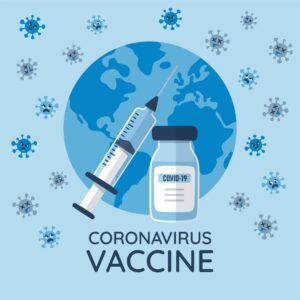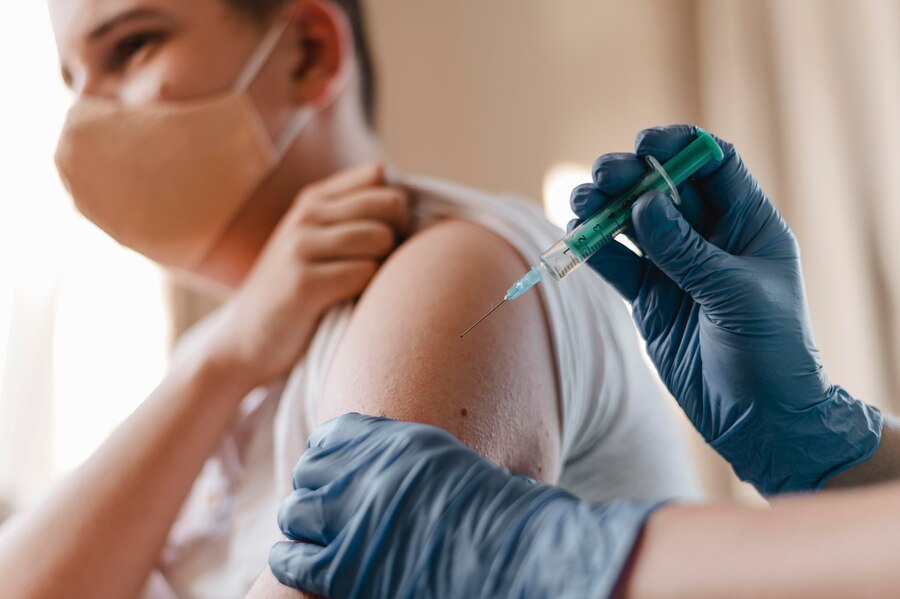The COVID-19 pandemic has had a profound global impact, causing significant illness, death, and societal disruption. The development and widespread distribution of COVID-19 vaccines have been crucial in mitigating the impact of the pandemic and returning to a sense of normalcy.
How COVID-19 Vaccines Work
COVID-19 vaccines work by training the body’s immune system to recognize and fight off the virus that causes COVID-19. They do this by introducing the body to harmless pieces of the virus (such as the spike protein) or genetic material that provides instructions for the body to make the spike protein. This triggers an immune response, producing antibodies and other immune cells that can protect the body from future infection.
Types of COVID-19 Vaccines
Several types of COVID-19 vaccines have been developed and authorized for use, including:
- mRNA vaccines: These vaccines use messenger RNA (mRNA) to instruct cells to produce a piece of the virus, triggering an immune response. (e.g., Pfizer-BioNTech, Moderna)
- Viral vector vaccines: These vaccines use a modified version of a different virus (a viral vector) to deliver genetic material from the COVID-19 virus into cells, triggering an immune response. (e.g., Johnson & Johnson, AstraZeneca)
- Protein subunit vaccines: These vaccines use harmless pieces of the virus protein to trigger an immune response. (e.g., Novavax)
Benefits of COVID-19 Vaccination

- Reduced Risk of Severe Illness, Hospitalization, and Death:
- COVID-19 vaccines have been highly effective at preventing severe illness, hospitalization, and death from COVID-19, even with the emergence of new variants.
- Reduced Risk of Long COVID:
- Vaccination significantly reduces the risk of developing long COVID, a condition characterized by long-term health problems following a COVID-19 infection.
- Protection Against Variants:
- While no vaccine is 100% effective against all variants, COVID-19 vaccines continue to provide significant protection against severe illness and hospitalization caused by circulating variants.
- Reduced Transmission:
- Vaccination helps to reduce the spread of COVID-19 within communities, protecting vulnerable populations such as the elderly and immunocompromised individuals.
- Return to Normalcy:
- Widespread vaccination has enabled the return to more normal social and economic activities, such as reopening schools, businesses, and travel.
Addressing Common Concerns and Misconceptions
- Vaccine Safety:
- COVID-19 vaccines have undergone rigorous safety testing and monitoring.
- Serious side effects from COVID-19 vaccines are extremely rare.
- The benefits of COVID-19 vaccination far outweigh the potential risks.
- Vaccine Effectiveness:
- While no vaccine is 100% effective, COVID-19 vaccines have demonstrated high levels of effectiveness in preventing severe illness, hospitalization, and death.
- The effectiveness of vaccines may wane over time, emphasizing the importance of booster doses.
- Vaccine Misinformation:
- It’s crucial to rely on credible sources of information about COVID-19 vaccines, such as the Centers for Disease Control and Prevention (CDC), the World Health Organization (WHO), and the National Institutes of Health (NIH).
- Be wary of misinformation and disinformation that can spread quickly on social media and other platforms.
FAQs
1. Who should get a COVID-19 vaccine?
- COVID-19 vaccination is recommended for individuals aged 6 months and older.
- Are COVID-19 vaccines safe for pregnant or breastfeeding women?
- Yes, COVID-19 vaccines are safe and effective for pregnant and breastfeeding women.
- Do I still need to wear a mask if I am vaccinated?
- Vaccination significantly reduces the risk of severe illness, but it is still possible to contract and transmit COVID-19.
- Public health guidelines regarding mask-wearing may vary depending on community transmission levels and individual risk factors.
- When should I get a COVID-19 booster shot?
- Booster shots are recommended for most individuals to maintain strong protection against COVID-19.
- The specific timing of booster shots may vary depending on age, vaccination history, and individual health conditions.
Conclusion
COVID-19 vaccination is a safe and effective public health intervention that has played a crucial role in mitigating the impact of the pandemic. By getting vaccinated, individuals can protect themselves, their loved ones, and their communities from the serious consequences of COVID-19.
Schedule an appointment with our clinic for Covid-19 vaccination (469) 200-5974 or visit us https://scclittleelm.com/

